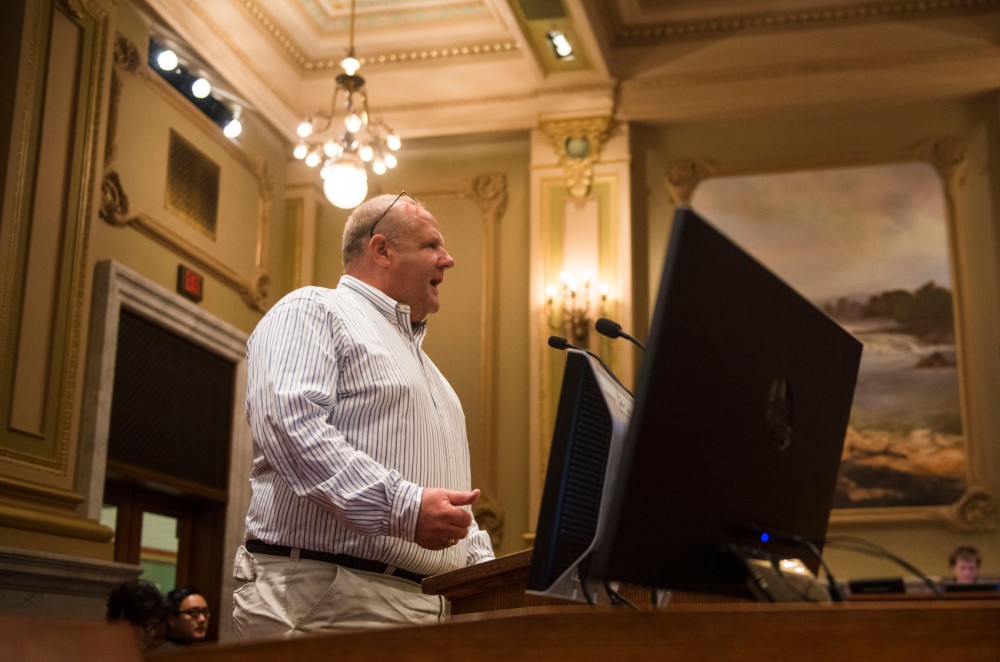A new apartment complex that promises to buck the recent trend of expensive luxury housing is getting pushback from a local neighborhood organization.
Dinkytown Rentals, a company with more than 50 properties near the University of Minnesota’s campus, pitched a low-rent apartment complex project to the Marcy-Holmes Neighborhood Association in March.
But because the original proposal included details that neighborhood leaders said weren’t in line with the area’s aesthetics, the plans are under question.
City officials offered suggestions Monday to ease the neighborhood leaders’ concerns, but Dinkytown Rentals’ owner Tim Harmsen said if they’re adopted, the complex’s rent rates will rise.
“The problem is, if we’re trying to deliver affordable housing and an affordable product, then we can’t afford all the expenses,”
Neighborhood leaders say the complex should fit in with the rest of the area, unlike the new, color-blocked luxury complexes. The parameters would require covering the building with brick, rather than metal panels that were originally planned for some of the building, and flattening a pitched roof.
City Planner Aaron Hanauer presented a report on the project to the city’s planning commission committee Monday, where city officials adopted suggestions that include a flat roof and use fewer building materials for siding. They also told Harmsen to use different siding materials.
Harmsen said the recommendations will increase the project’s cost, and the burden will be shifted onto renters. The suggestions, he said, will raise the 33-unit project’s estimated cost by $165,000, which would increase the apartment’s studio rate of $780 to $810.
“Affordability is kind of a subjective word, but you can’t support a very expensive building with low rent,” Harmsen said.
Harmsen said his complex is geared toward young graduate students and instead of focusing on accommodating drivers with lots of parking space, it’s going to offer room for cyclists and their bikes.
When any housing project is proposed, the developer is required to notify the area’s neighborhood association.
Though neighborhood leaders don’t have to approve plans for a development to move forward, Marcy-Holmes Neighborhood Association Land Use Committee co-chair Larry Prinds said board members still take their concerns to the city.
The MHNA created a housing diversity task force last year to look into housing issues and how they can be improved around the neighborhood.
“Affordability is very valuable to the neighborhood,” Prinds said.
The neighborhood’s board made its suggestions for the new complex to the city based on the appearance of neighboring buildings, Prinds said.
Planners for the complex said they were surprised that an affordable option was met with resistance from the neighborhood.
Harmsen said he’s disappointed with the commission’s reaction to his plans but plans to move forward within the city’s guidelines.








